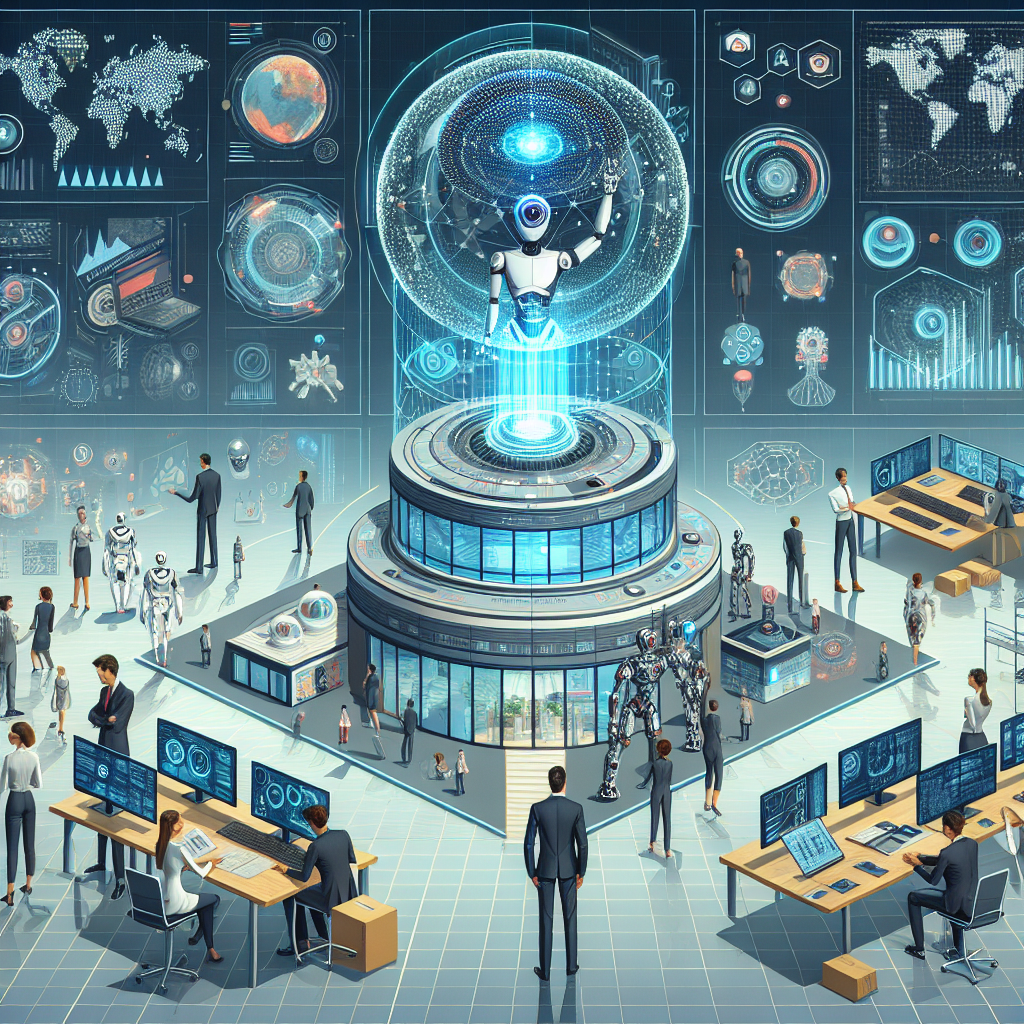The Future of Work: How AGI Will Change the Job Market
Artificial General Intelligence (AGI) has long been a topic of fascination and speculation in the field of artificial intelligence. While current AI technologies have made significant advancements in specific tasks and applications, AGI represents the next frontier in AI research – a system that can perform any intellectual task that a human can.
As AGI continues to evolve and become more sophisticated, its impact on the job market is expected to be profound. While some experts predict that AGI will lead to massive job displacement and widespread unemployment, others believe that it will create new opportunities and transform the way we work. In this article, we will explore the potential implications of AGI on the job market and how it may shape the future of work.
The Rise of Artificial General Intelligence
Artificial General Intelligence refers to a system that possesses the ability to understand, learn, and apply knowledge in a wide range of tasks and contexts. Unlike current AI technologies, which are designed for specific applications such as image recognition or natural language processing, AGI aims to replicate the full range of human cognitive abilities.
While AGI is still in the early stages of development, researchers and companies around the world are making significant progress in advancing the technology. One of the key challenges in developing AGI is creating a system that can generalize knowledge and adapt to new situations, rather than simply following pre-programmed rules or patterns.
As AGI continues to evolve, it has the potential to revolutionize a wide range of industries and sectors. From healthcare and finance to transportation and manufacturing, AGI could automate tasks, improve decision-making processes, and enable new levels of efficiency and productivity.
Implications for the Job Market
The impact of AGI on the job market is a topic of intense debate among economists, policymakers, and technologists. While some argue that AGI will lead to widespread job displacement and unemployment, others believe that it will create new opportunities and transform the nature of work.
One of the key concerns surrounding AGI is the potential for automation to replace human workers in a wide range of industries. As AGI becomes more capable of performing complex tasks and problem-solving, it could render many jobs obsolete, particularly those that involve routine or repetitive tasks.
For example, in the transportation industry, self-driving vehicles powered by AGI could replace truck drivers, taxi drivers, and delivery drivers. In the healthcare sector, AGI-powered diagnostics systems could automate the process of diagnosing and treating patients, potentially reducing the need for human doctors and medical professionals.
While automation has the potential to streamline processes, reduce costs, and improve efficiency, it also raises concerns about the impact on employment and income inequality. Without adequate training and support, workers in industries affected by automation could face job loss, wage stagnation, and limited opportunities for career advancement.
On the other hand, some experts argue that AGI will create new opportunities and transform the nature of work in ways that we cannot yet imagine. As AGI becomes more prevalent, it could enable new types of jobs and industries that require human creativity, empathy, and problem-solving skills.
For example, in the field of creative arts and entertainment, AGI could collaborate with human artists and designers to create new forms of music, art, and storytelling. In the field of education, AGI-powered tutoring systems could personalize learning experiences for students and help them achieve their full potential.
Ultimately, the impact of AGI on the job market will depend on a wide range of factors, including the pace of technological development, the level of investment in education and training, and the policies and regulations put in place to manage the transition to a more automated workforce.
Frequently Asked Questions
Q: Will AGI lead to widespread job displacement and unemployment?
A: While AGI has the potential to automate many tasks and jobs, it could also create new opportunities and transform the nature of work. The impact of AGI on the job market will depend on a wide range of factors, including the pace of technological development, the level of investment in education and training, and the policies and regulations put in place to manage the transition to a more automated workforce.
Q: How can workers prepare for the impact of AGI on the job market?
A: Workers can prepare for the impact of AGI on the job market by developing skills that are difficult to automate, such as creativity, empathy, and problem-solving. Investing in education and training programs that teach these skills will help workers adapt to the changing nature of work and take advantage of new opportunities created by AGI.
Q: What policies and regulations are needed to manage the impact of AGI on the job market?
A: Policymakers and regulators will play a crucial role in managing the impact of AGI on the job market. They can implement policies that promote lifelong learning, support workers affected by automation, and ensure that the benefits of AGI are shared equitably among all members of society.
In conclusion, the rise of Artificial General Intelligence has the potential to transform the job market in ways that we cannot yet fully predict. While AGI could lead to job displacement and unemployment in some industries, it could also create new opportunities and enable new forms of work that require human creativity, empathy, and problem-solving skills. By investing in education and training programs, developing policies that support workers, and fostering innovation and collaboration, we can harness the power of AGI to create a more inclusive and prosperous future of work.

